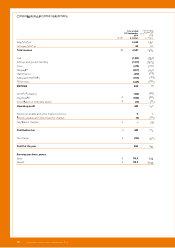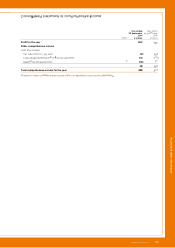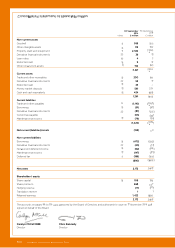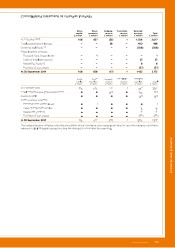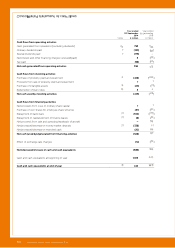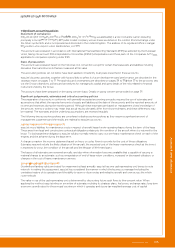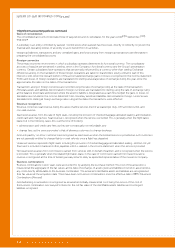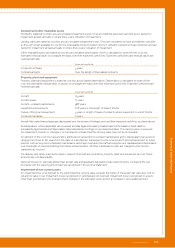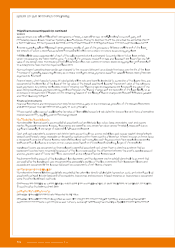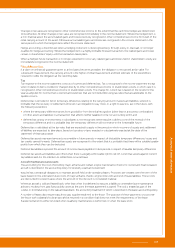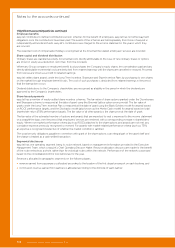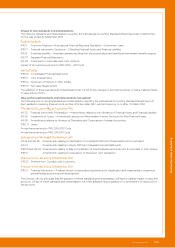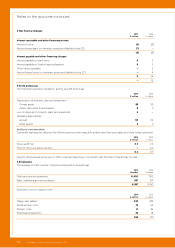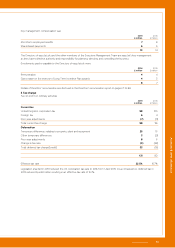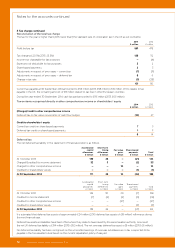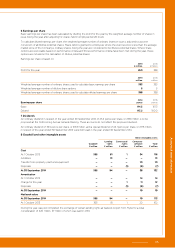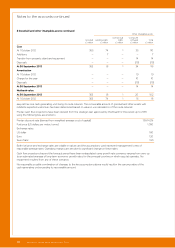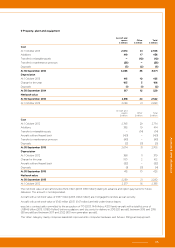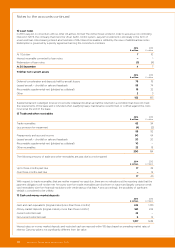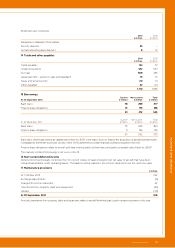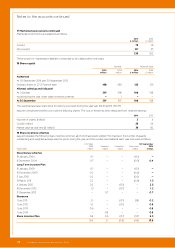EasyJet 2014 Annual Report Download - page 110
Download and view the complete annual report
Please find page 110 of the 2014 EasyJet annual report below. You can navigate through the pages in the report by either clicking on the pages listed below, or by using the keyword search tool below to find specific information within the annual report.
108 easyJet plc Annual report and accounts 2014
Notes to the accounts continued
1 Significant accounting policies continued
Employee benefits
easyJet contributes to defined contribution pension schemes for the benefit of employees. easyJet has no further payment
obligations once the contributions have been paid. The assets of the schemes are held separately from those of easyJet in
independently administered funds. easyJet's contributions are charged to the income statement in the year in which they
are incurred.
The expected cost of compensated holidays is recognised at the time that the related employees' services are provided.
Share capital and dividend distribution
Ordinary shares are classified as equity. Incremental costs directly attributable to the issue of new ordinary shares or options
are shown in equity as a deduction, net of tax, from the proceeds.
Where any Group company or employee benefit trust purchases the Company’s equity shares, the consideration paid and any
directly attributable incremental costs are deducted from retained earnings until the shares are cancelled or reissued. Proceeds
from reissue are shown as a credit to retained earnings.
easyJet settles share awards under the Long Term Incentive, Sharesave and Share Incentive Plans by purchasing its own shares
on the market through employee benefit trusts. The cost of such purchases is deducted from retained earnings in the period
that the transaction occurs.
Dividend distributions to the Company’s shareholders are recognised as a liability in the period in which the dividends are
approved by the Company’s shareholders.
Share-based payments
easyJet has a number of equity-settled share incentive schemes. The fair value of share options granted under the Discretionary
and Sharesave scheme is measured at the date of grant using the Binomial Lattice option pricing model. The fair value of
grants under the Long Term Incentive Plan is measured at the date of grant using the Black-Scholes model for awards based
on ROCE performance targets, and the Stochastic model (also known as the Monte Carlo model) for awards based on total
shareholder return (TSR) performance targets. The fair value of all other awards is the share price at the date of grant.
The fair value of the estimated number of options and awards that are expected to vest is expensed to the income statement
on a straight-line basis over the period that employees' services are rendered, with a corresponding increase in shareholders'
equity. Where non-market performance criteria (such as ROCE) attached to the share options and awards are not met, any
cumulative expense previously recognised is reversed. For awards with market-related performance criteria (such as TSR),
an expense is recognised irrespective of whether the market condition is satisfied.
The social security obligations payable in connection with grant of the share options is an integral part of the grant itself and
the charge is treated as a cash-settled transaction.
Segmental disclosures
easyJet has one operating segment, being its route network, based on management information provided to the Executive
Management Team, which is easyJet’s Chief Operating Decision Maker. Resource allocation decisions are made for the benefit
of the route network as a whole, rather than for individual routes within the network. Performance of the network is assessed
based on the consolidated profit or loss before tax for the year.
Revenue is allocated to geographic segments on the following bases:
revenue earned from passengers is allocated according to the location of the first departure airport on each booking; and
commission revenue earned from partners is allocated according to the domicile of each partner.


